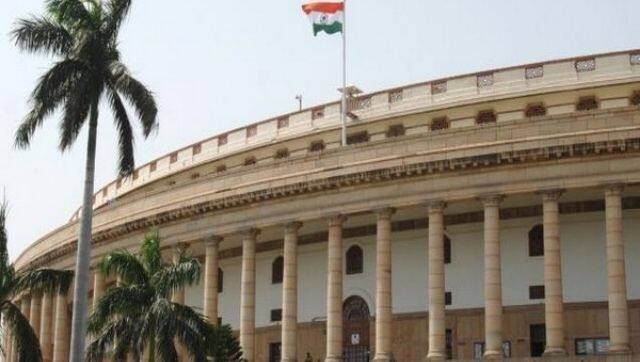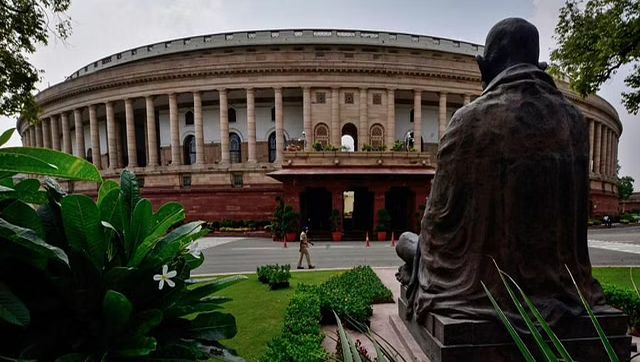A prominent politician and a senior journalist made a legal point recently on ‘The Places of Worship (Special Provisions) Act, 1991’. They have argued that this law is a part of the basic structure of the Constitution of India. In precise terms, this is an incredibly wrong legal position to argue. It is true that in courts anything and everything can be argued, still there are some legal ground realities which are not up for a debate. Even a cursory reading of the statement itself proves that it is wrong. The 1991 law is an ordinary law enacted by Parliament, it is not a part of the Constitution of India, which is a separate document. To argue that this law is part of the basic structure of the ‘Constitution’, is counterintuitive. How can some law be a part of the basic structure of the Constitution when it is not even a part of the Constitution in the first place? To understand the issue, I will first explain what is the basic structure doctrine. The Basic Structure Doctrine was propounded by the Supreme Court of India in the celebrated case of Kesvananda Bharti v State of Kerala. This decision was given by a bench of 13 judges of the Court, which remains the highest bench strength of the Court till date to pronounce any judgment. In any judgment of any Court there is something known as the ratio decidendi (often referred as just ratio) of the judgement which is the legal question which was put to the court and which the judges have decided in that particular case. This is also the part of the judgement which is binding. The ratio in the judgement of the Kesvananda case has been deliberated upon by multiple jurists and there are differing opinions on the same. However, what everyone agrees on is that the majority judgement places restrictions on the amending power of the Parliament. Article 13 of the Constitution provides that the Parliament of India can’t enact any law which is in violation of the Fundamental Rights as provided in the Constitution. Article 368 provides that Parliament has the power to amend any provision of the Constitution. Hence, a legal question arose — what if the Parliament tries to amend a fundamental right itself? The Court held that the Parliament has power to amend any provision of the Constitution, but it can’t amend the basic structure. The Court has from time to time pronounced what all provisions and principles form part of the basic structure of the Constitution. These provisions, thus, become immune from any amendment which can be made by Parliament. [caption id=“attachment_10533091” align=“alignnone” width=“640”]  Parliament of India. ANI[/caption] Parliament has two distinct powers under the scheme of our constitution. First is the constituent power, under the exercise of which it makes constitutional law, by amending the Constitution. Second is the legislative power, which it exercises when it makes ordinary law. As mentioned earlier, ordinary law is restricted by Article 13, which provides that no law can be enacted in a manner where fundamental rights are violated. We also now know that constituent power is restricted by the basic structure doctrine, post the Kesvananda judgment. It is a legal grey area, and arguable, that legislative power can also be restricted by the basic structure doctrine. However, what the politician and the journalist have argued is something very weird in this context that — by the exercise of legislative power, the parliament has made constitutional law and the law is part of the basic structure of the Constitution.
***
Also Read **How Places of Worship Act infringes basic human and constitutional right of seeking justice** Explained: The relevance of the Places of Worship Act ahead of the Gyanvapi Mosque case hearing in Supreme Court **'Ascertainment of religious character of place of worship not barred under Places of Worship Act': SC on Gyanvapi mosque** **Retired Army officer files plea in SC, claims certain sections of Places of Worship Act violate principles of secularism** **Jamiat Ulama-i-Hind moves Supreme Court seeking intervention in plea against Places of Worship Act**
***
It is common knowledge that a judgement of a higher bench strength prevails over a lower bench strength judgment. What the Supreme Court did in Kesvananda was that it considered the question of amending power of the parliament and pronounced that it is limited. Still, it left it open for the future benches, even of lower bench strengths, to determine what in the constitution can be considered as a part of its basic structure. However, it did lay down the contours of the basic structure doctrine in judgement itself. Thus, it is clear that the 13-judge decision has laid down that the basic structure has to be found within the constitution itself, and not outside of it, in any law. Those who have argued that the Places of Worship Act, is part of the basic structure of the constitution have wrongly relied upon the Ram Janmabhoomi judgement, where the Court has mentioned that this Act furthers the basic structure. Furthers the basic structure in no way means that it is a part of the basic structure of the Constitution in legal terms. Still, this assertion is legally wrong on two counts. First, this statement by the court in the Ayodhya judgement is not part of its ratio decidendi (explained earlier) and hence, non-operational. This is so because the bench was deciding a legal question which was in the nature of a title suite, it was not deciding a constitutional law question, where its opinion on the basic structure can be considered in any manner. Second, the contours of the basic structure doctrine and that it applies only to what is mentioned in the text of the constitution has been laid down in the 13-judge bench decision of Kesvananda. The decision to include a law in the basic structure of the constitution, as absurd as it may sound, can only be made by a bench which has 13 or more judges. A five-judges bench can’t change the scope of the doctrine to include laws within it. It should be clear as water that Parliament has all the authority to repeal the Places of Worship Act, whenever it may want to. The doctrine of basic structure is in no way stopping it to do the same. In fact, it is not even relevant when it comes to deciding upon this issue. Those who are arguing on these lines either don’t know about the established constitutional norms or are not telling the truth for reasons best known to them. The author is an Assistant Professor of Law at Maharashtra National Law University Mumbai and a Visiting Fellow at India Foundation. He tweets at @raghavpandeyy Read all the Latest News , Trending News , Cricket News , Bollywood News , India News and Entertainment News here. Follow us on Facebook, Twitter and Instagram.


)

)
)
)
)
)
)
)
)



